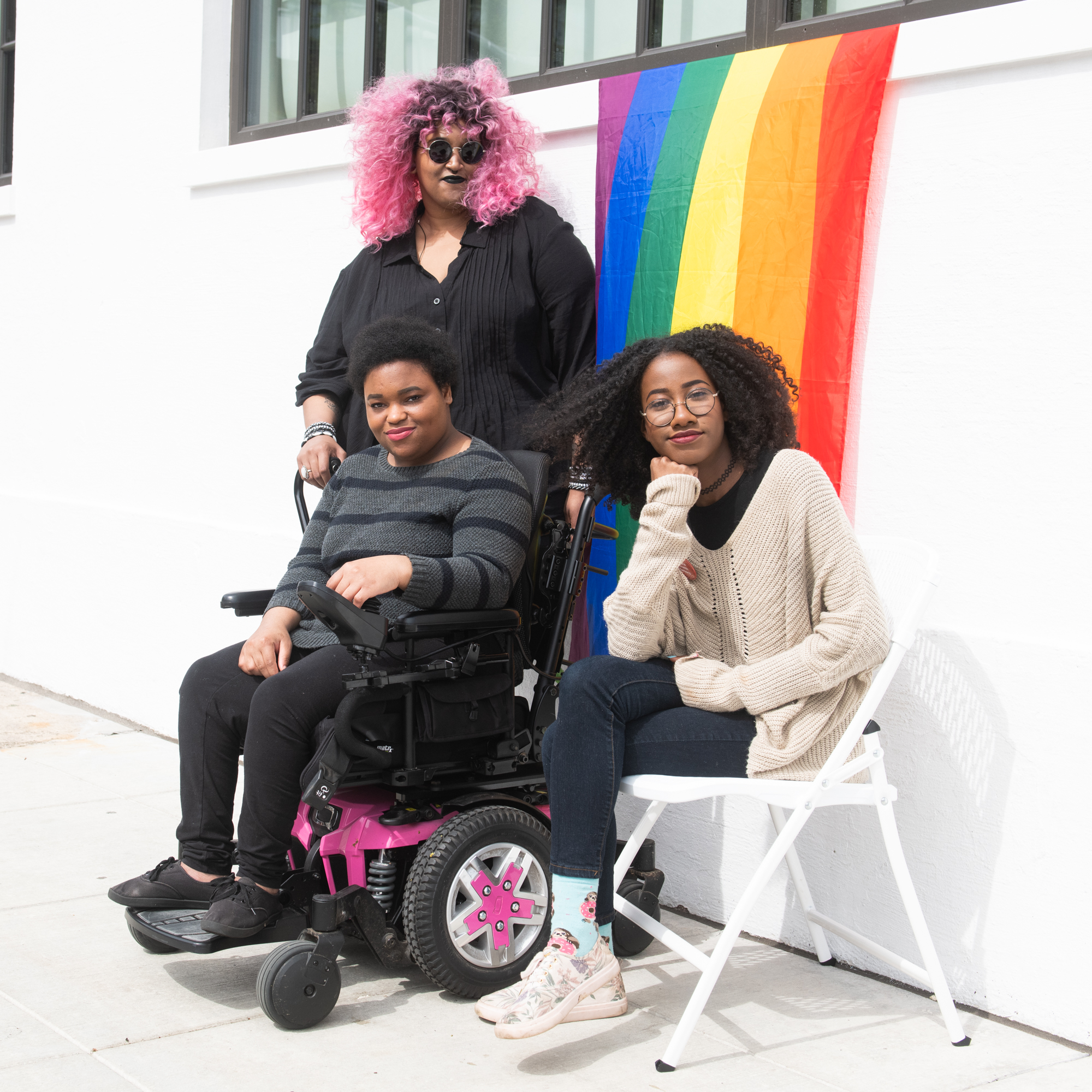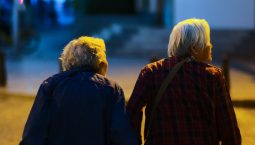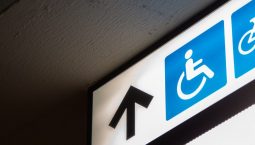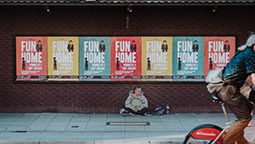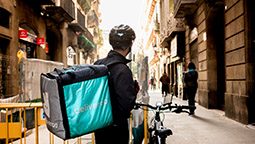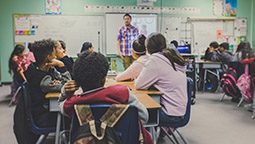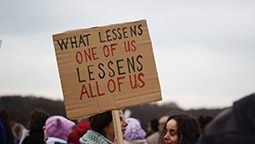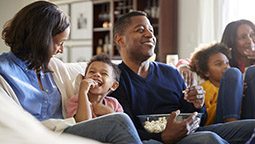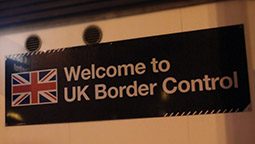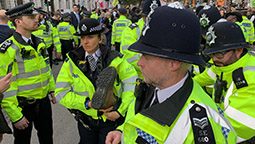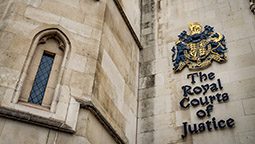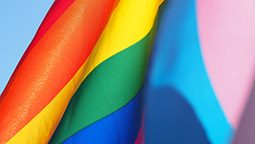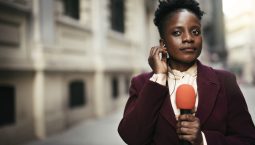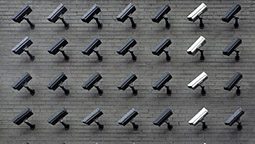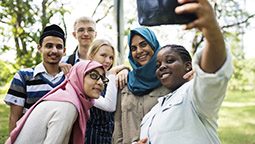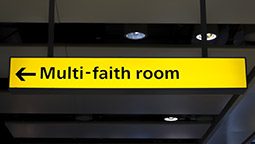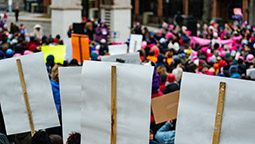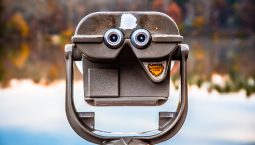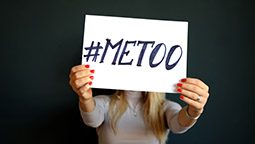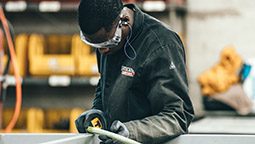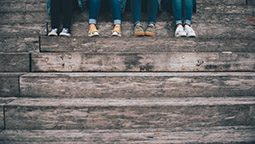Although disabled people are a vital part of the LGBTQIA+ community, they are often ostensibly excluded from Pride month events. Is there a way to ensure inclusivity ensures accessibility?
Disabled people are meant to be protected from discrimination under the Equality Act 2010 and the Human Rights Act 1998 but the fight for consistent accessibility is still raging, even at Pride where equality is supposed to be at the centre of everything.
“Pride is really important to me, to celebrate the resilience, perseverance, and unity of our community, and continue the political protest,” says Jasper Williams, a disabled advocacy expert. He says that the smaller Pride events he has attended have made a more concerted effort to be accessible and inclusive, which creates a real sense of community.
For some queer people, fear of inaccessibility discourages them from attending Pride events. “Although sometimes without realising, Pride events exclude disabled people by being inaccessible,” says freelance journalist Rachel Charlton-Dailey. “It makes me feel unwelcome, like I’m not wanted in their space – [as if] it isn’t a space for me.”
How many disabled people are in the LGBTQIA+ community?
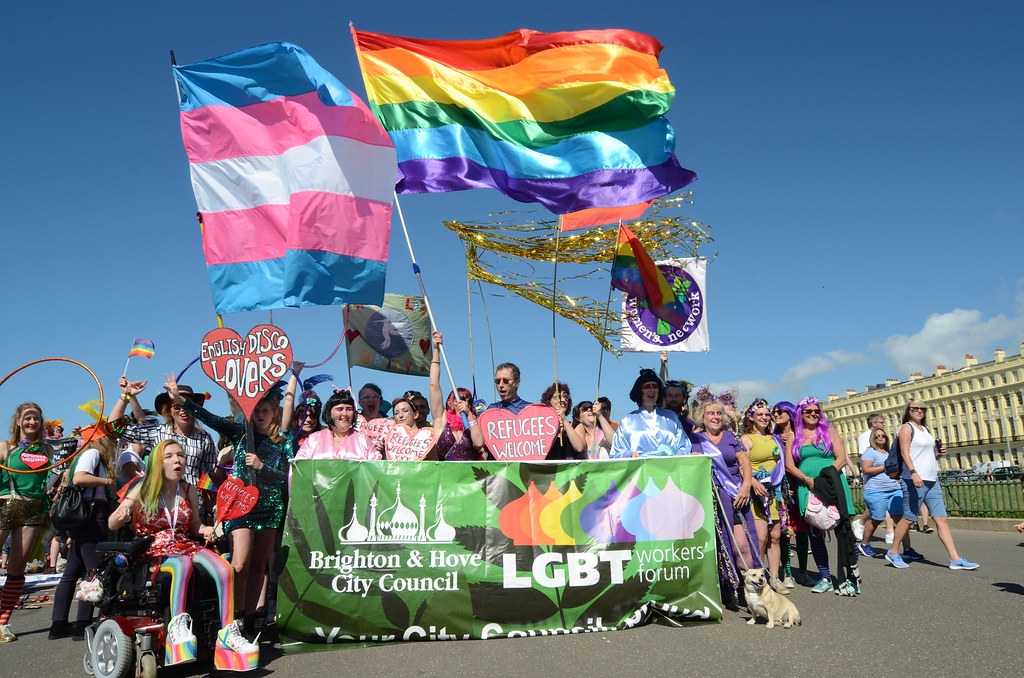
Brighton Pride Procession 2016
There are at least 1.2 million people who identify as lesbian, gay or bisexual in the UK and an estimated 600,000 people are transgender. We do not currently have clear data on the number of people who identify as other LGBTQIA+ identities, like pansexual and asexual. With 14.1 million disabled people living in the UK, it’s likely that a significant portion are also part of the LGBTQIA+ community. [Editor’s note: In our research, we have been unable to find anyone collating specific data on the representation of disability in the queer community in the United Kingdom. There appears to be substantial research on sex, relationships, etc but no one has been able to confirm the actual figures on the number of queer disabled people.]
In 2019, Brighton Pride faced a barrage of criticism after some disabled people were unable to access the viewing platform for Kylie Minogue’s headline performance. Its accessibility platform was at full capacity, organisers said, but disabled attendees alleged that they had oversold disabled tickets.
“Often at more corporate, bigger Prides there have been a lot of access issues – making it feel very exclusive and not made for people like me,” adds Williams. “Often at Prides, it’s been impossible for me to get through the crowds, and even when I ask, people ignore me as a disabled person – which has often led to me having to just push my chair and hope people just move out of the way. I get a lot of stares, glares, and tuts throughout Prides as if they’re thinking, ‘What is a disabled person doing at Pride?’”
Every summer, social media platforms are full of disabled people sharing their experiences of inaccessibility at Pride events. While accessibility at Pride appears to be an ongoing problem, there are still no comprehensive studies on the accessibility of Pride events around the country.
How does exclusion from Pride events impact disabled people?
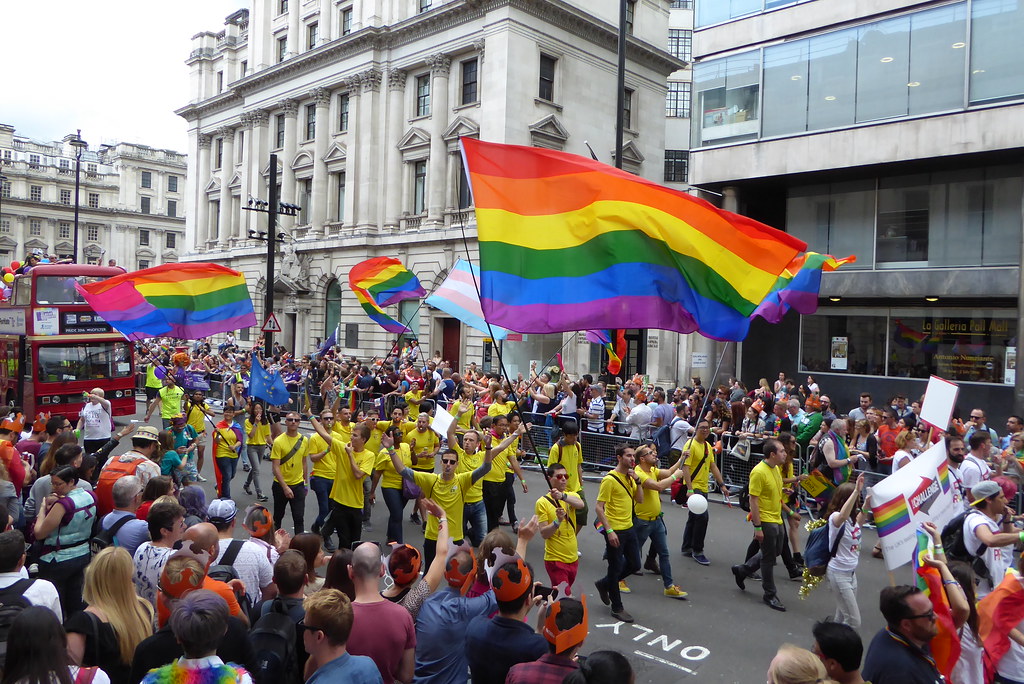
Pride London 2016
“If people go to a place and it’s not accessible to them without huge modifications, that can feed into a feeling of not belonging, of active exclusion and can lead to concealment, which is one of the leading causes of psychological distress,” explains LGBTQIA+ psychotherapist and chair of Oxford Pride Zayna Ratty. “Isolation via a lens of feeling you don’t belong, or are not welcome, can also cause people to mask and not be open if they have difficulties.”
Williams has found that a lack of consideration has made his Pride experiences a trial, particularly due to the absence of BSL interpreters during the main Parade, a lack of adequately covered rest areas and a focus on overstimulating events with bright lights and noise.
“These access issues mean that I then miss out and can’t access a really significant amount of Pride, and feel very excluded from my own community,” he says. “Organisers need to remember that accessibility should not be an afterthought, but a priority when planning Pride.”
How do organisers prioritise accessibility?
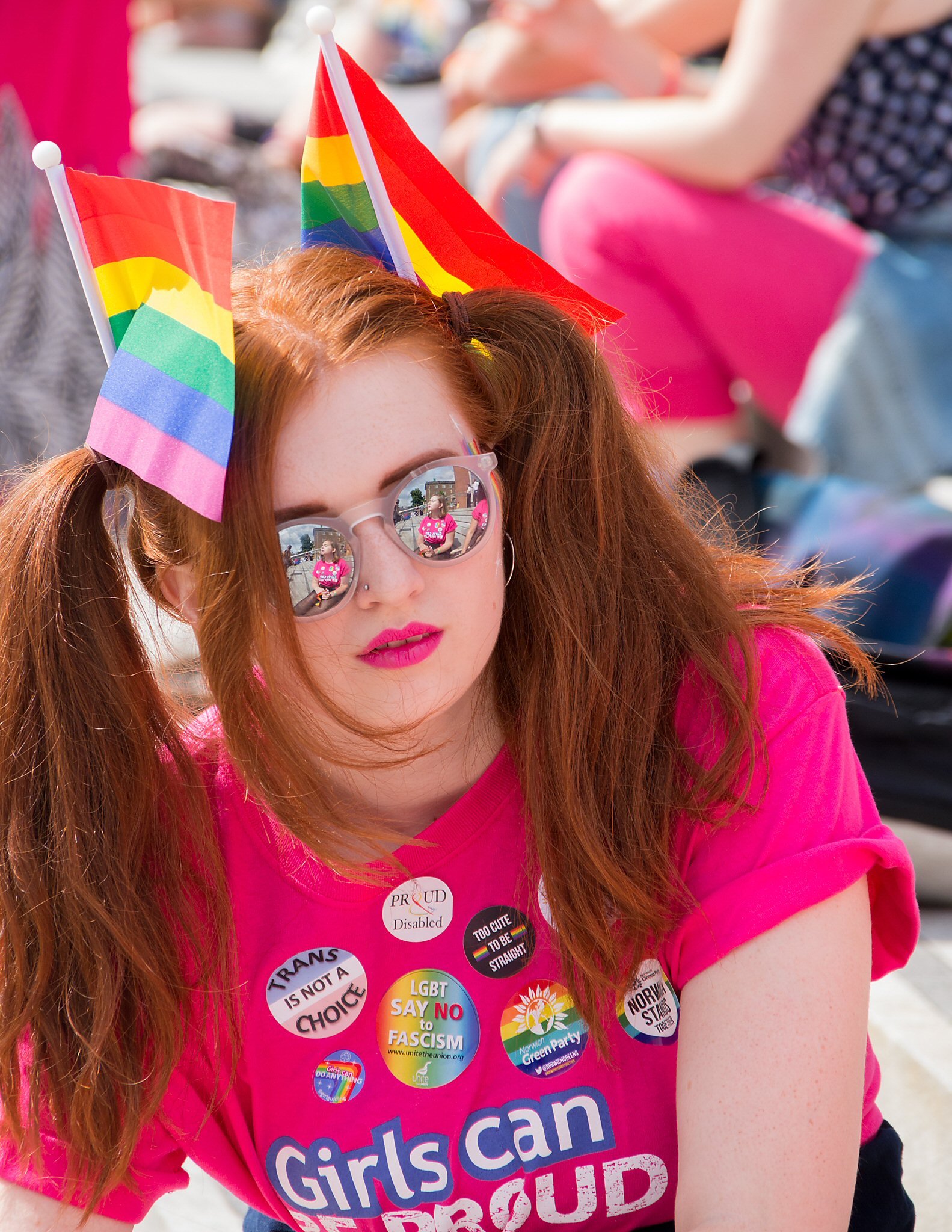
Norwich Pride 2016
Ensuring events are accessible is a multi-step process and some organisers are making significant steps toward disability friendly events. When Ratty took over the role of chair at Oxford Pride she created a new post called the accessibility officer, who creates accessibility aims and targets for their events. She also ensures the organisation subscribes to the social model of disability, which says that people are disabled by barriers in society, not by their impairment or disability.
“We check venues to ensure that not only are they on the social model of disability, but they have also been shown by their actions to be courteous and respectful of everyone in their space,” explains Ratty. “We ensure that visibility and representation of disabled people this year on stage and on the inclusion panel. None of this comes cheap but it’s all worth it.”
Oxford Pride ensures that in-person events include a mobile accessible toilet with an adult-sized changing bench, hoist and attendant – provided by Mobiloo – and that they provide a quiet zone for people who want a break (for example, people with autism or misophonia). They also offer a regular sober drop-in space online and in-person called Queer Talk because they felt that too many events are around places where alcohol is present. The LGBTQIA+ community is disproportionately at risk of substance abuse problems.
To improve accessibility at Oxford Pride, some of the groups involved included Regard, a charity advocating for disabled LGBTQIA+ people, and Attitude Is Everything, who work to improve disabled and deaf people’s access to live music.
“It’s important to make Pride events accessible because that’s what Pride is built on,” says Jamie Love, entertainment director of Pride Edinburgh.“To name a few things we have put in place: we have transport along the march for those who want to partake but can’t physically, so they can still enjoy the march, and we have accessible areas throughout the Pride Village, as well as our mainstage.”
Several organisations and groups in the UK have been set up to specifically cater to queer disabled people’s needs, like Brownton Abbey, “where queer, black and brown disabled folks reign supreme”, ParaPride, who work with venues to improve accessibility, and LGBTQ+ Disabled Queer and Hear.
As organisations make strides to improve accessibility for disabled people, it’s important that they prioritise access for all marginalised groups. Ratty says, “Accessibility isn’t just about ramps, you are aiming to remove barriers of access for all, in essence you are aiming for equity for everyone who might want to attend.”

